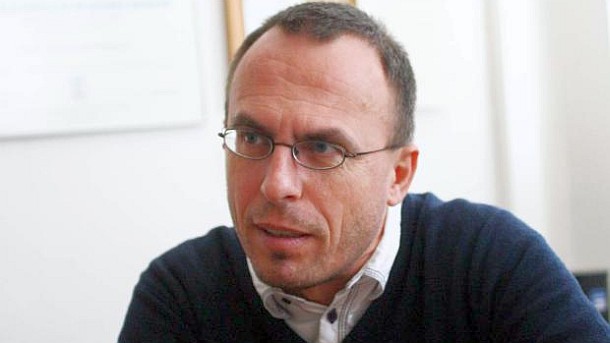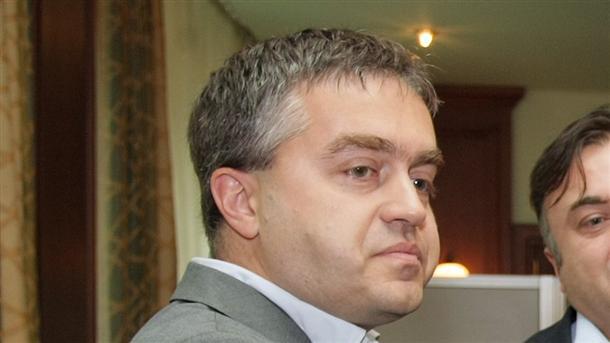The newly elected European Parliament is convening for its inaugural session in Strasbourg. The seventeen Bulgarian MEPs are joining the political groups of the European People’s Party (EPP), the Progressive Alliance of Socialists and Democrats, the European Conservatives and Reformists and the Alliance of Liberals and Democrats for Europe (ALDE). Its first decision today was to re-elect the European Parliament President, German Social-Democrat Martin Schulz. After the EPP and ALDE declared their support, he received far more than the necessary majority vote. This is indicative of the approximate size of the pro-European majority of Christian-democrats, socialists and liberals who will be working together for the preservation of European values, commented for Radio Bulgaria political analysts Vladimir Shopov and Dr. Ivan Nachev.
 “This parliament faces several principal tasks,” says Dr. Ivan Nachev. “The first is to elect a new European Commission, that is why it is so important whether it will send a signal of understanding or not, something that the Eurosceptics and the nationalists in the European Parliament may certainly use to their benefit. This parliament must also tackle other problems, connected with the EU budget, as well as a possible enlargement of the Union. This is the reason why the efforts to reach accord in the distribution of posts and the stabilization of the European Commission will be much more strenuous than in previous parliaments.”
“This parliament faces several principal tasks,” says Dr. Ivan Nachev. “The first is to elect a new European Commission, that is why it is so important whether it will send a signal of understanding or not, something that the Eurosceptics and the nationalists in the European Parliament may certainly use to their benefit. This parliament must also tackle other problems, connected with the EU budget, as well as a possible enlargement of the Union. This is the reason why the efforts to reach accord in the distribution of posts and the stabilization of the European Commission will be much more strenuous than in previous parliaments.”
 “I myself expect to see the more interesting changes come not so much from the new MEPs as from a different conduct by this European Parliament,” says Vladimir Shopov. “First, Parliament is regarded as a much stronger player within the whole system of European politics and Juncker’s future election to the post of European Commission President is the illustration of this process. Second, there are MEPs and parties much more inclined to criticize the European Commission and its legislative initiative. I think we shall see many legislative initiatives being rejected by Parliament.”
“I myself expect to see the more interesting changes come not so much from the new MEPs as from a different conduct by this European Parliament,” says Vladimir Shopov. “First, Parliament is regarded as a much stronger player within the whole system of European politics and Juncker’s future election to the post of European Commission President is the illustration of this process. Second, there are MEPs and parties much more inclined to criticize the European Commission and its legislative initiative. I think we shall see many legislative initiatives being rejected by Parliament.”
In mid-July, the European Parliament will vote the nomination of the leaders of the EU member state for President of the European Commission, according to the new Lisbon Treaty rules. Jean-Claude Juncker is the Council of the EU’s qualified majority decision. The votes “against” came from Great Britain and Hungary. Jean-Claude Juncker was Prime Minister of Luxembourg for almost 20 years and Eurogroup President for 8 years, and this at a time when the single European currency and the EU itself had hit the worst crisis. It would be difficult to find any other politician with a deeper insight into European politics. This nomination is a good thing for Bulgaria as well, as Juncker has been displaying a positive attitude to this country; he has always supported our accession to the EU, ever since 1990. It was during Luxembourg’s Presidency, the time when he was Prime Minister, that Bulgaria’s accession treaty was signed with the participation of Juncker himself. And again we got his support when Bulgaria came close to the preparatory mechanism for the Eurozone and again with regard to Schengen. So, Bulgaria can expect the next European Commission President to lend a sympathetic ear.
“I think what we can count on is Juncker’s fair treatment and, to my mind, that is enough,” says Vladimir Shopov. “This could prove paramount in Bulgaria’s mandatory political shift towards accession to the Eurozone. There, the European Commission plays a key role, because there exist a number of criteria. We have been fulfilling most of them, though not all. He may also benefit the country with his firm belief that the Euro is a project that is irreversible.”
“If he is elected, he could be of assistance in stabilizing the Bulgarian economy,” comments Dr. Ivan Nachev. “The European Commission has sufficient resources and instruments in the management of funds, earmarked for the member countries. When an attempt was made to trigger a financial crisis in Bulgaria, the European Commission was the first to render the country’s banks financial assistance. Not because they were in need of help, but it is important in a situation such as this for all institutions, with no exception, to give their support to the banking system of Bulgaria and of all EU countries. The banking integration, which some call banking union, is important because there are over 5,000 banks in the Eurozone countries alone. And they are connected with other countries outside the zone. Bulgaria is not part of the Eurozone yet, but that means much higher stability, it means transparency and security. Being Bulgarian citizens we must not pass by the opportunities integration offers. What we shall expect of the European Commission President is more concern for the citizens of Europe, because the conservative policy pursued by the Barroso Commission failed to attain the objectives we had all been aspiring to.”
English version: Milena Daynova
President Rumen Radev's consultations with parliamentary groups continue. Today, he will meet representatives of the Alliance for Rights and Freedoms (led by Ahmed Dogan), There is Such a People (ITN) and MECH. Radev has already held talks with..
At today's consultations with President Rumen Radev on forming a government within the 51st National Assembly, the leader of the nationalist Vazrazhdane party, Kostadin Kostadinov, said that if Vazrazhdane was given a third mandate to form a government,..
"We Continue the Change - Democratic Bulgaria (PP-DB), the second largest parliamentary group, has said that it will support the formation of a regular government only if GERB-SDS agrees to sign the PP-DB declaration calling for a "cordon sanitaire"..
Calin Georgescu to run for President of Romania Romanian police seized weapons and large sums of money in the investigation against pro-Russian..

+359 2 9336 661
